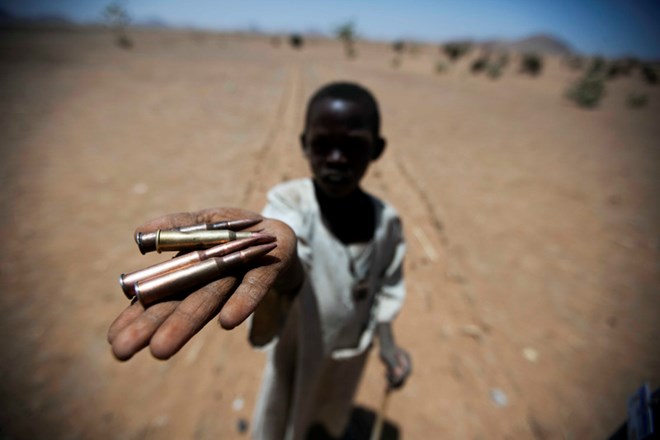Euobserver
Monday October 17, 2016

Sudan's government-led militia wants the EU to fund its weapons and vehicles. (Photo: Albert Gonzalez Farran / UNAMID)
Later this week in Brussels, EU leaders will be discussing forthcoming deals with a handful of African states.
With repressive regimes like Sudan demanding that the EU finance border controls, leaders appear increasingly willing to do almost anything to stop people from crossing the Mediterranean to reach Italy.
Last November, Sudan’s foreign minister Ibrahim Ghandour said the EU should help pay to keep migrants from crossing its borders into Libya and Egypt.
A few months later, it sent the EU commission a wish list of demands.
Sudan requested the EU pay for "computers, cameras, scanners, servers, cars, aircraft" at 17 crossing points along its borders under a programme that is part financed by the European Development Fund.
"In principle yes but aircraft unlikely," responded the commission, in a document that can be found on the commission's website.
Sudan's president Omar al-Bashir is wanted by the International Criminal Court for genocide and crimes against humanity.
The country's crossing points are also patrolled by the notorious Sudanese government militia, the Rapid Support Force (RSF).
The RSF, which is also part of Sudan's national and intelligence security services, includes men who fought in Darfur with the Janjaweed, a militia of Sudanese Arab tribes that is now part of the RSF.
Mohamed Hamdan, a warlord often referred to as Hametti, commands the RSF.
In August, he said his forces had arrested 20,000 migrants in the company of human traffickers near the border with Libya.
The traffickers had confiscated some of his weapons and vehicles, he said. Hametti then demanded the EU replace them.
"We are hard at work to aid Europe in containing the flow of migrants, and if our valuable efforts are not well appreciated, we will open the desert to migrants," he warned.
The EU commission quickly issued a statement denying it had offered the RSF any help to begin with.
No direct financial support
But it can, if it so chooses, provide "technical assistance" and "equipment" to customs and police bodies in repressive states like Sudan under a 2014 programme known as the Khartoum Process.
The programme is financed from a variety of sources, including the European Development Fund regional programme for East Africa.
An EU official said none of the requests by Sudan have been met but would not entirely rule out the possibility either.
The demands were made as part of a broader €40 million package under the so-called European Union Africa Trust Fund.
European Parliament resolution
Sudan is steeped in blood.
Hundreds of thousands of people have fled, with over 3 million displaced internally, given ongoing conflicts like in Darfur.
Earlier this month, the European Parliament passed a resolution condemning Sudan for widespread human rights abuse.
The list of accusations includes chemical weapon attacks on civilians, extrajudicial killings, sexual violence, and harsh crackdowns on any opposition.
Given the abuses, the EU parliament asked the commission to monitor its development assistance in Sudan so as not to provide "any direct or indirect support to local militias".
But with close to 150,000 people having left the north Africa coast to reach Italy so far this year alone, policy makers are under intense pressure to sort deals with the regimes to slow the flows and crack down on smugglers.
In 2015, EU said it was prepared to "use all policies and tools" to develop a new approach to migration in Africa.
€100 million aid package
A year later in April, EU development commissioner Neven Mimica went to Sudan, met its ministry of interior, and then announced a €100 million aid package for the country.
"Development and security go hand in hand," he later said.
An activist in Sudan, who asked not to be name, told EUobserver in July that the EU's engagement with the regime is only making life more difficult.
"It's not adding to the development in anyway, it's not going to change the economic situation because there is a high rate of corruption in the country," noted the contact.
The UK-based NGO Saferworld made similar comments in an August.
"The EU is in essence providing these repressive regimes with a cloak of international legitimacy at a time when more scrutiny on their domestic policies is needed," wrote Kloe Tricot O'Farrell, the NGO's EU advocacy officer.